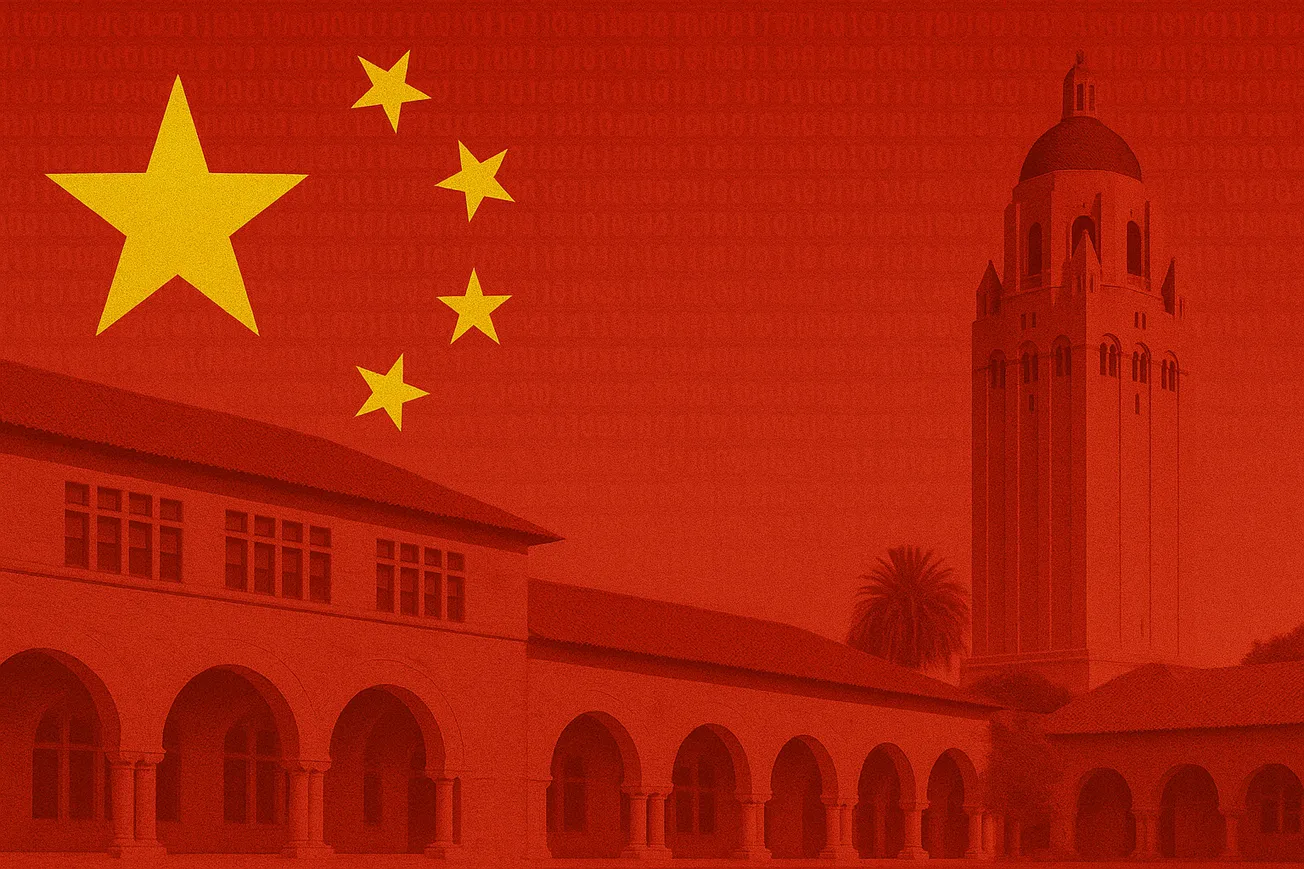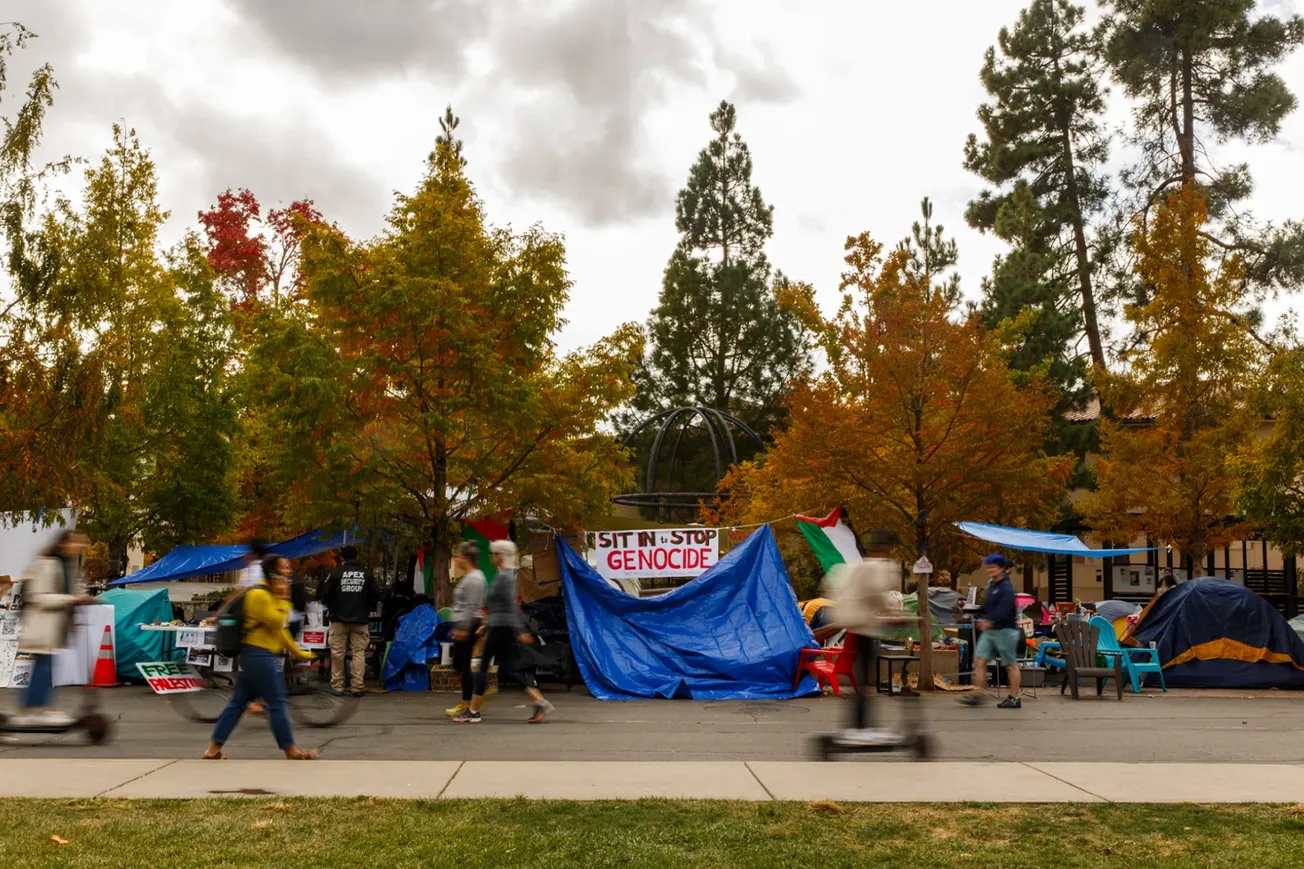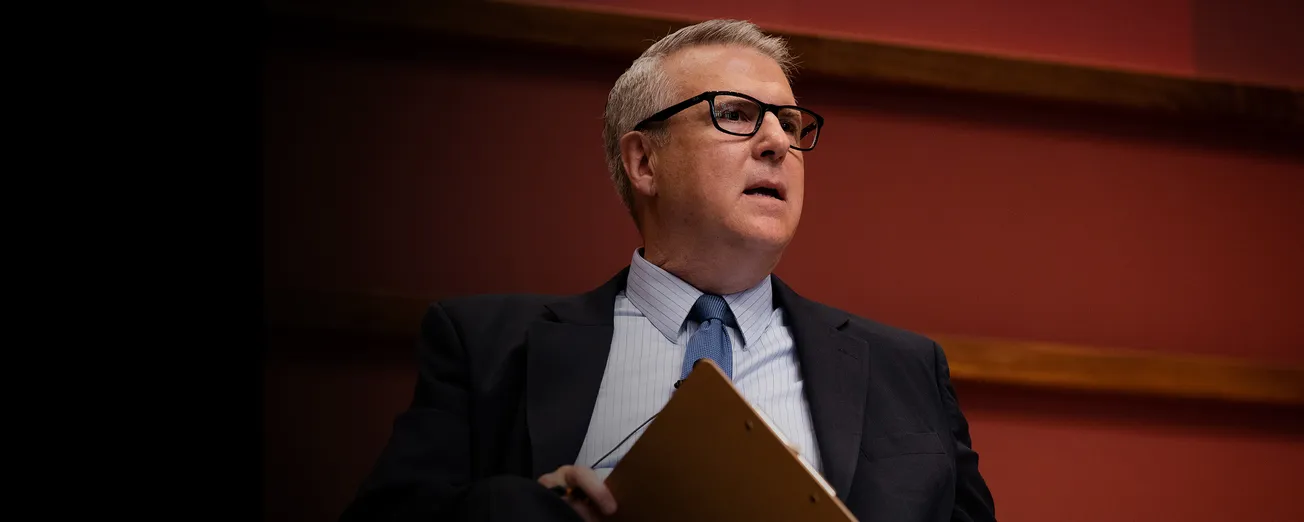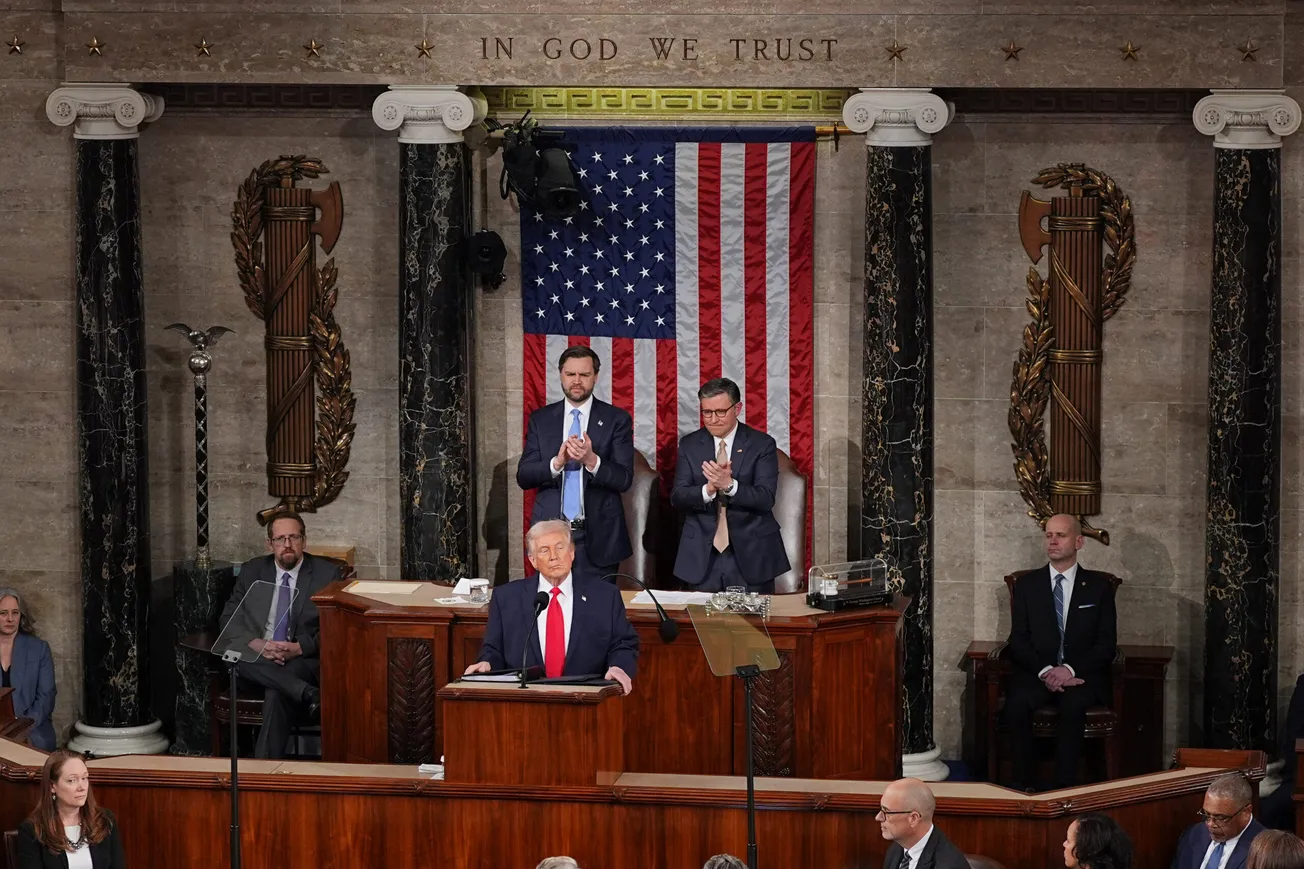Table of Contents
This summer, a CCP agent impersonated a Stanford student. Under the alias Charles Chen, he approached several students through social media. Anna*, a Stanford student conducting sensitive research on China, began receiving unexpected messages from Charles Chen. At first, Charles's outreach seemed benign: he asked about networking opportunities. But soon, his messages took a strange turn.
Charles inquired whether Anna spoke Mandarin, then grew increasingly persistent and personal. He sent videos of Americans who had gained fame in China, encouraged Anna to visit Beijing, and offered to cover her travel expenses. He would send screenshots of a bank account balance to prove he could buy the plane tickets. Alarmingly, he referenced details about her that Anna had never disclosed to him.
He advised her to enter China for only 24 to 144 hours, short enough, he said, to avoid visa scrutiny by authorities, and urged her to communicate exclusively via the Chinese version of WeChat, a platform heavily monitored by the CCP. When Charles commented on one of her social media posts, asking her to delete screenshots of their conversations, she knew this was serious.
Under the guidance of experts familiar with espionage tactics, Anna contacted authorities. Their investigation revealed that Charles Chen had no affiliation with Stanford. Instead, he had posed as a Stanford student for years, slightly altering his name and persona online, targeting multiple students, nearly all of them women researching China-related topics. According to the experts on China who assisted Anna, Charles Chen was likely an agent of the Chinese Ministry of State Security (MSS), tasked with identifying sympathetic Stanford students and gathering intelligence.
A Culture of Silence and Fear
This March, Stanford’s President, Dr. Jonathan Levin, received a letter from the Select Committee on the CCP detailing the security risks China poses to STEM research. For years, concerns about Chinese espionage have quietly persisted at Stanford. Throughout our investigation, professors, students, and researchers readily recounted their experiences of Chinese spying, yet they declined to speak publicly. One student who experienced espionage firsthand was too fearful to recount their story, even via encrypted messaging. “The risk is too high,” they explained. Transnational repression, $64 million in Chinese funding, and allegations of racial profiling have contributed to a pervasive culture of silence at Stanford and beyond.
It is this pervasive silence that has compelled us to write. After interviewing multiple anonymous Stanford faculty, students, and China experts, we can confirm that the CCP is orchestrating a widespread intelligence-gathering campaign at Stanford. In short, there are Chinese spies at Stanford.
To investigate these concerns, we interviewed over a dozen individuals, including Stanford professors, current students, and China experts specializing in technology transfer and espionage. The majority of interviewees spoke under the condition of anonymity, citing fears of retaliation from both the Chinese Communist Party (CCP) and Stanford's academic community. Their accounts, cross-referenced where possible, form the basis of our findings.
Under its Made in China 2025 plan, China aims to unseat the US as the dominant force in frontier technologies. Such a plan necessitates substantial technology transfers from America's research institutions. Given its dominance in AI, Stanford is academic target number one.
Speaking at a China Town Hall event, the former U.S. National Security Council’s Director for China, Matthew Turpin, characterized the threat of Chinese espionage at Stanford:
“The Chinese state incentivizes students to violate conflicts of commitment and interest, ensuring they bring back technology otherwise restricted by export controls.”
Former FBI Director Christopher Wray has called this theft of academic research “one of the largest transfers of wealth in human history.”
The CCP’s Strategy: Non-Traditional Collection
According to Stanford experts on Chinese intelligence-gathering efforts who wished to remain anonymous, the Chinese Communist Party (CCP) has employed a 'crowdsourced approach' to gathering information at Stanford. Dubbed ‘non-traditional collection,' the Chinese Ministry for State Security (MSS) uses civilians unaffiliated with the intelligence community to acquire and report sensitive information. The aim of non-traditional collectors isn’t necessarily to steal classified documents but rather to quietly extract the know-how behind American innovation.
This includes conclusions from Stanford research projects, methodologies, software, lab workflows, collaborative structures, and even communication channels. Stanford faculty speaking anonymously stated that this non-traditional collection of sensitive technology is extensively practiced at Stanford, particularly in AI and robotics.
A China expert, familiar with Stanford, who wished to remain anonymous, confirmed that of the approximately 1,129 Chinese International students on campus, a select number are actively reporting to the Chinese Communist Party (CCP). China’s 2017 National Intelligence Law mandates that all Chinese citizens support and cooperate with state intelligence work regardless of location.
Article 7 of this law enforces compliance: “Any organization or citizen shall support, assist, and cooperate with state intelligence work in accordance with the law, and keep the secrets of the national intelligence work from becoming known to the public.” These laws leave Chinese students no option but to accept the demands of the CCP. Students engaged in sensitive scientific research, especially in fields like AI and robotics, are those most often targeted.
One Chinese national at Stanford spoke to us on this very issue under conditions of anonymity:
“Many Chinese [nationals] have handlers; they [CCP] want to know everything that's going on at Stanford. This is a very normal thing. They just relay the information they have.”
Another Stanford student shared an incident involving their professor's encounter with suspected Chinese espionage. According to the student, the professor recounted needing to schedule a meeting with a Chinese student. When the student declined, citing a mysterious reason, the Professor asked why. The student replied, “You know why.” The professor continued to inquire, only to receive the cryptic response, “I cannot tell you that.” Finally, the professor revealed that the student admitted to meeting a CCP handler.
This issue has been under discussion at Stanford since 2019, as highlighted by a Stanford Daily article that featured interviews with anonymous Chinese nationals. One Chinese student remarked, “Whether peer monitoring exists at Stanford is moot; it’s the possibility that keeps people cautious about what they say. If it exists, I’m not going to be surprised.”
A China expert at Stanford further explained that Chinese students comply with information requests in one of three ways. Some resist by providing only the bare minimum of sensitive research information. Others comply out of a desire to maintain their CCP scholarship funds. Lastly, some fully cooperate and act opportunistically to maximize their collected data.
State Control Through Scholarships and Surveillance
The Chinese Scholarship Council (CSC), which funds an estimated 15% of Chinese students at American universities, is regarded as a primary avenue of information gathering. China experts speaking anonymously confirmed that it requires students to regularly submit “Situation Reports” to Chinese diplomatic missions about their research. These experts also confirmed that the CCP uses these reports to identify and acquire sensitive technological information.
A former Edinburgh University student, Alyssa Fong, claimed that CSC recipients were monitored by “Chinese handlers” who required them to report on dissent at events covering sensitive topics. An anonymous Stanford faculty member added, “If Chinese students have handlers at Edinburgh University, you can be assured they have handlers at Stanford.” Stanford Professor Larry Diamond went further, citing anonymous examples of peer surveillance where students “say things favorable to the Dalai Lama or criticize the posture of the People’s Republic of China on something or condemn authoritarianism in China” and are told that their family could get in trouble.
One Stanford student conducting research in China relayed a discussion with a CCP member who was educated at Stanford. This former student disclosed that the Chinese Scholarship Council (CSC) directs students' research priorities to align with state-sponsored research activities at Stanford. A 2020 report from Georgetown’s Center for Security and Emerging Technology (CSET) verifies this. With access to translated CSC agreements, CSET found that students must adhere to state-defined objectives when applying for research positions.
The Stanford-educated CCP member further said students are chosen for CSC grants based on party loyalty tests. Radio Free Asia corroborates this claim, reporting that Chinese students funded by the CSC were required to sign loyalty pledges to the Chinese Communist Party (CCP), with guarantors (often family members) facing financial penalties if students violated these pledges.
In an exclusive interview with the Review, Matthew Turpin echoed the claims of the CCP member:
“The Chinese government spends a lot of time collecting data on its overseas students; it has a pretty good understanding of who is doing what and if someone is working in an area of interest [frontier technology]. If students have access to things the government would like access to, it is relatively easy to reach out to an individual. They use carrots and sticks. If you turn over information, you may get a reward; if you don't, there is a punishment.”
Chinese nationals with family members in China are coerced into sharing sensitive information with the most harrowing of punishments on their families if they refuse to do so. “They are often told that it is in the best interest of both them and their families to provide research data that would not typically be disclosed.” Turpin described how Chinese authorities have had “Parents and relatives brought in for a talk with the police, to encourage [Chinese nationals] to turn over information. “These are the kinds of tactics we've seen before,” he noted.
The case of Stanford student Chen Song illustrates this very point: the CCP demands total compliance and directs individuals toward sensitive information. In July 2020, Song was indicted for lying about her affiliation with the Chinese military, formally known as the People’s Liberation Army (PLA). In the charging documents, prosecutors accused Song of concealing her involvement in the PLA to obtain a J-1 visa to conduct research at Stanford.
DOJ documents allege that Song sent multiple updates to a Chinese government entity detailing the “nature, results, and value of her research work at Stanford.” Assistant Director Alan E. Kohler Jr. of the FBI's Counterintelligence Division stated, “Time and again, the Chinese government prioritizes stealing U.S. research and taking advantage of our universities over obeying international norms.”
The case of Stanford student Chen Song is the only well-known espionage incident publicly acknowledged by Stanford. However, according to Stanford insiders, espionage cases are only disclosed to the public in extraordinary circumstances. Claims of racial profiling have the potential to derail investigations, leading to strong institutional pushback against investigating these issues. Therefore, it is Stanford's policy and that of investigative authorities to maintain privacy, choosing instead to cancel student visas without public notice.
Ending the Silence
After collating our interviews, a clearer picture emerges. The CCP has designed a full-stack approach to information collection at Stanford and beyond. It mandates student compliance, directs them to sensitive research areas, and requires reports on their research.
By presenting the cases of Charles Chen and Chen Song, alongside experts and students familiar with China’s information-gathering operations at Stanford, we are not hoping to indict all Chinese students and researchers; many have made immense contributions to Stanford.
Make no mistake, these students are victims of their own government. Rather, our goal is to present firsthand accounts of an issue that has been silenced due to widespread accusations of racism and academic repression.
Those same accusations of racial profiling were used to disband the China Initiative in 2022, a project designed to prevent Chinese espionage. Asian American Congresswoman Michelle Steel, in an exclusive interview with the Review, labeled claims of racial profiling “a deliberate effort to prevent Beijing’s profiling and harassment of their citizens from coming to light.”
According to one China expert, who spoke on the condition of anonymity, “a whole community of professors and administrators” weaponized these claims to block action. When the Asian American Scholars Forum and the CCP’s propaganda arm, China Daily, can hardly be distinguished in their condemnation of these espionage investigations, the academic consensus must be questioned. Ethnicity should not be used as a basis for investigation, nor should fears of racism enable the flourishing of a CCP-sponsored effort to harvest critical technology.
Drawing on anonymous testimony from faculty, students, and China specialists, our investigation confirms that the CCP runs an extensive intelligence‑gathering network at Stanford. The existential question is straightforward: how should we respond? First and foremost, the status quo of branding those who discuss this issue as racist must end. We wrote this article not to advance a policy position but to highlight a silenced reality. Sound policy depends on evidence, not repression.
The nation that develops superior technologies will gain a critical military edge over its adversaries. China cannot be that nation. Working together, U.S. universities and the federal government need to take serious steps to defend the integrity of our nation’s mission-critical research. The future of freedom depends on it.
Updates
1) Charles Chen does not refer to any current or former Stanford student; rather it refers to the name of a fictitious social media profile used to contact Stanford students. 2) Stanford has released a statement on the Review's reporting, linked here.
This article is the first in a series covering Chinese Communist Party influence on campus. If you want to stay tuned as details come out, subscribe to the Stanford Review. If you have any relevant information about this topic, send it to eic@stanfordreview.org. And to support the work we do, make a donation.
Authors’ Note
This investigation draws on over a dozen interviews conducted between July 2024 and April 2025, involving Stanford faculty members, current and former students, and independent experts specializing in Chinese intelligence operations and technology transfer.
In cases where anonymity was granted, corroborating evidence was sought through public records, secondary interviews, or expert verification.
We use the term spying as defined by “work for a government or other organization by secretly collecting information about enemies or competitors,” not in any legal capacity.









